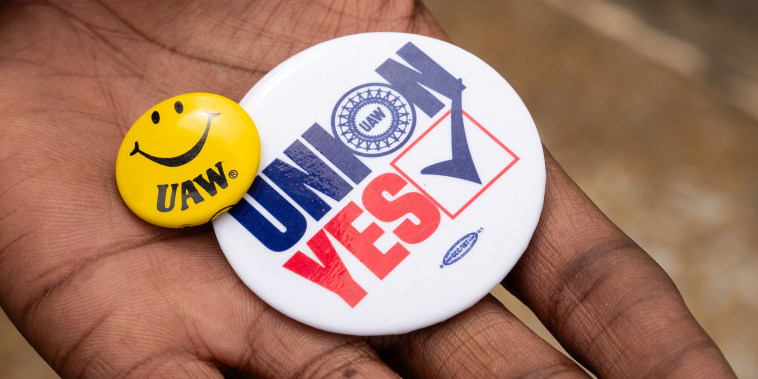The recent decision by Volkswagen workers in Tennessee to join the United Auto Workers (UAW) union has sent shockwaves through the automotive industry. This historic win for the union signals a significant shift in labor relations within the company and potentially sets a precedent for other foreign automakers operating in the United States.
The vote, which took place at the Volkswagen plant in Chattanooga, resulted in a narrow victory for the UAW, with workers choosing union representation by a margin of just 57 votes. This outcome comes after years of organizing efforts by the UAW to gain a foothold in foreign-owned auto plants in the U.S.
The decision to unionize is a significant milestone for the Volkswagen workers in Tennessee, who have long sought better working conditions, job security, and a stronger voice in company decisions. By joining the UAW, these workers hope to negotiate for better wages, benefits, and working conditions that are on par with their counterparts in unionized plants across the country.
The move to unionize at the Volkswagen plant in Chattanooga is particularly notable given the company’s past efforts to resist unionization. In 2014, workers at the plant voted against joining the UAW in a closely watched election that saw significant interference from anti-union groups and politicians. However, this time around, the UAW was able to secure a victory through persistent organizing and outreach efforts.
The decision to join the UAW is also significant in the broader context of labor relations in the automotive industry. With the rise of automation, globalization, and changing consumer preferences, workers in the auto sector are facing increasing pressure and uncertainty. By unionizing, Volkswagen workers in Tennessee are sending a clear message that they are willing to fight for their rights and secure a stronger voice in shaping the future of their workplace.
The impact of this historic win for the UAW at the Volkswagen plant in Tennessee is likely to reverberate throughout the automotive industry. It may embolden workers at other foreign-owned plants to consider unionization as a means to address their concerns and improve their working conditions. It could also lead to a reevaluation of labor practices and policies within Volkswagen and other automakers operating in the U.S.
In conclusion, the decision by Volkswagen workers in Tennessee to join the UAW represents a significant victory for labor rights and unionization efforts in the auto industry. This historic win underscores the power of collective action and demonstrates the resilience and determination of workers to secure their rights and improve their working conditions. The impact of this decision is likely to be felt far beyond the walls of the Volkswagen plant in Chattanooga and could pave the way for a new era of labor relations in the automotive sector.

